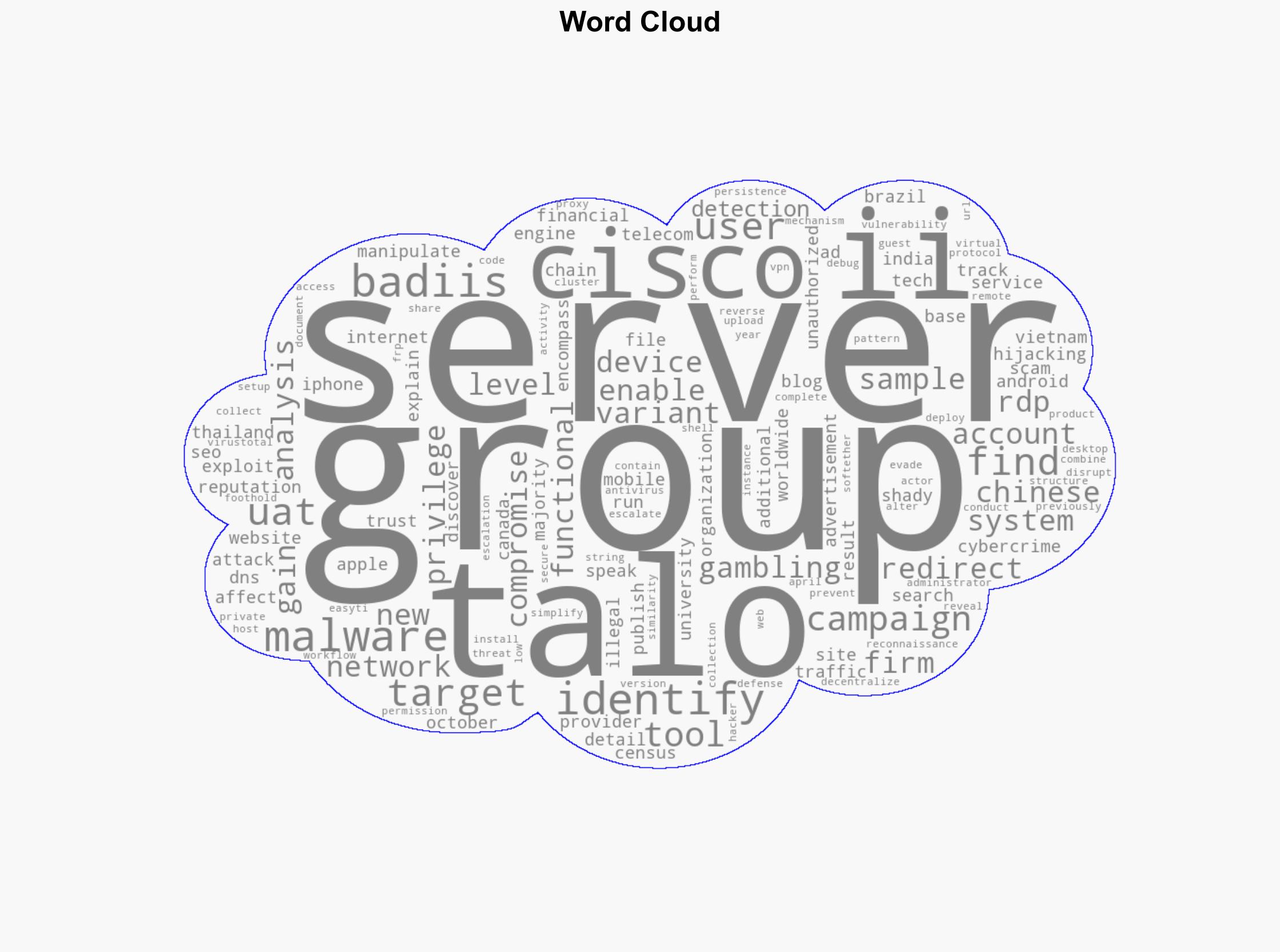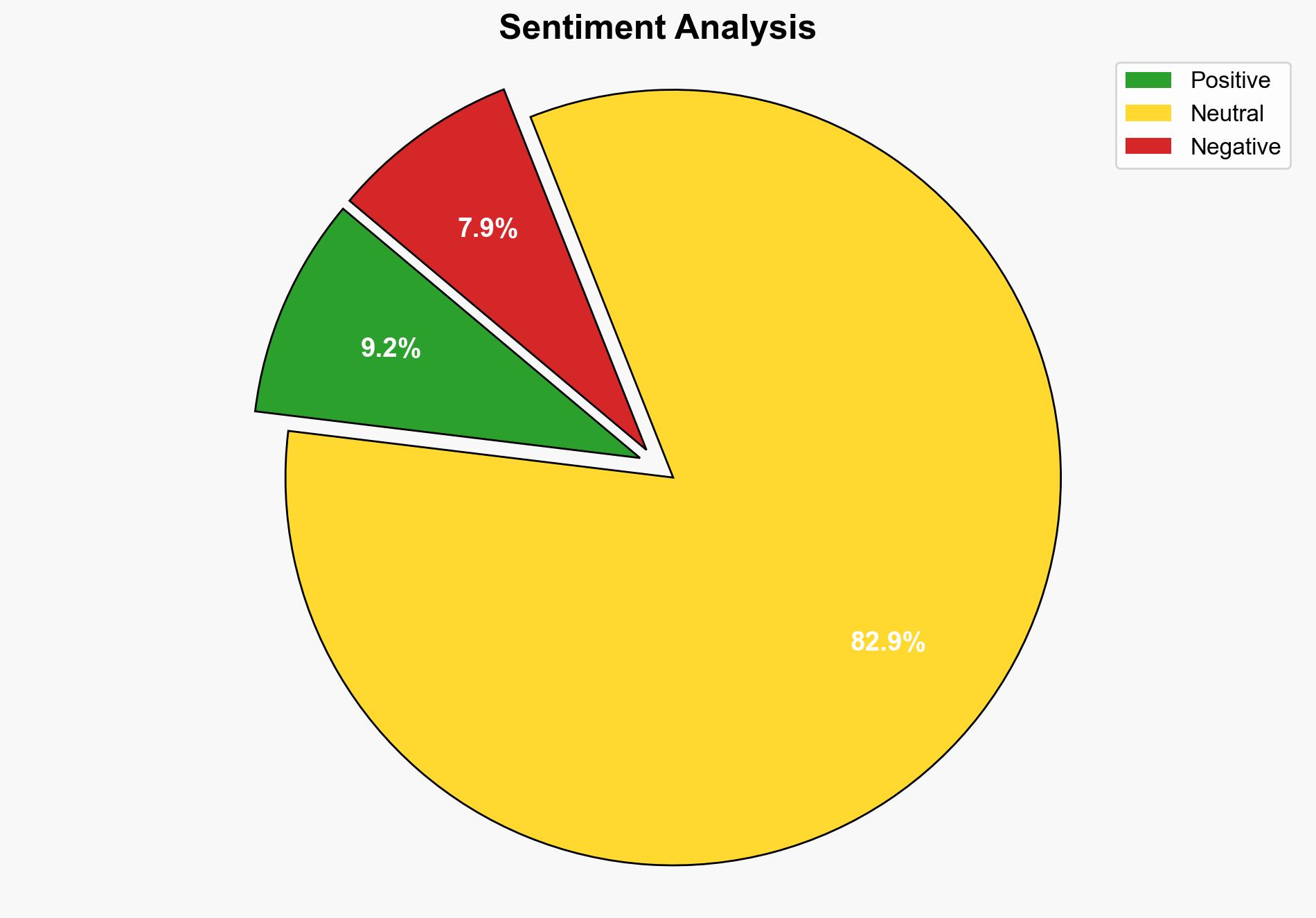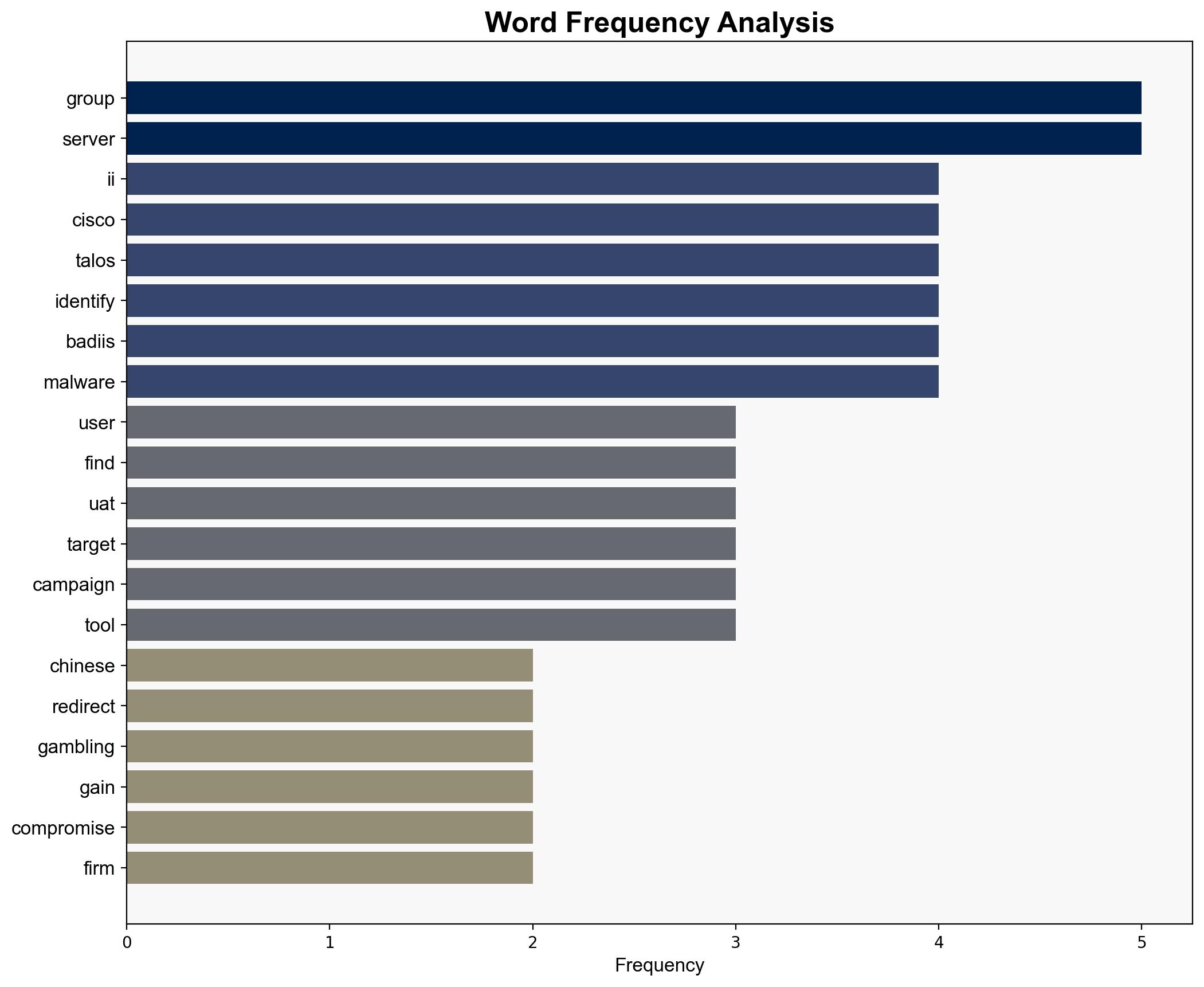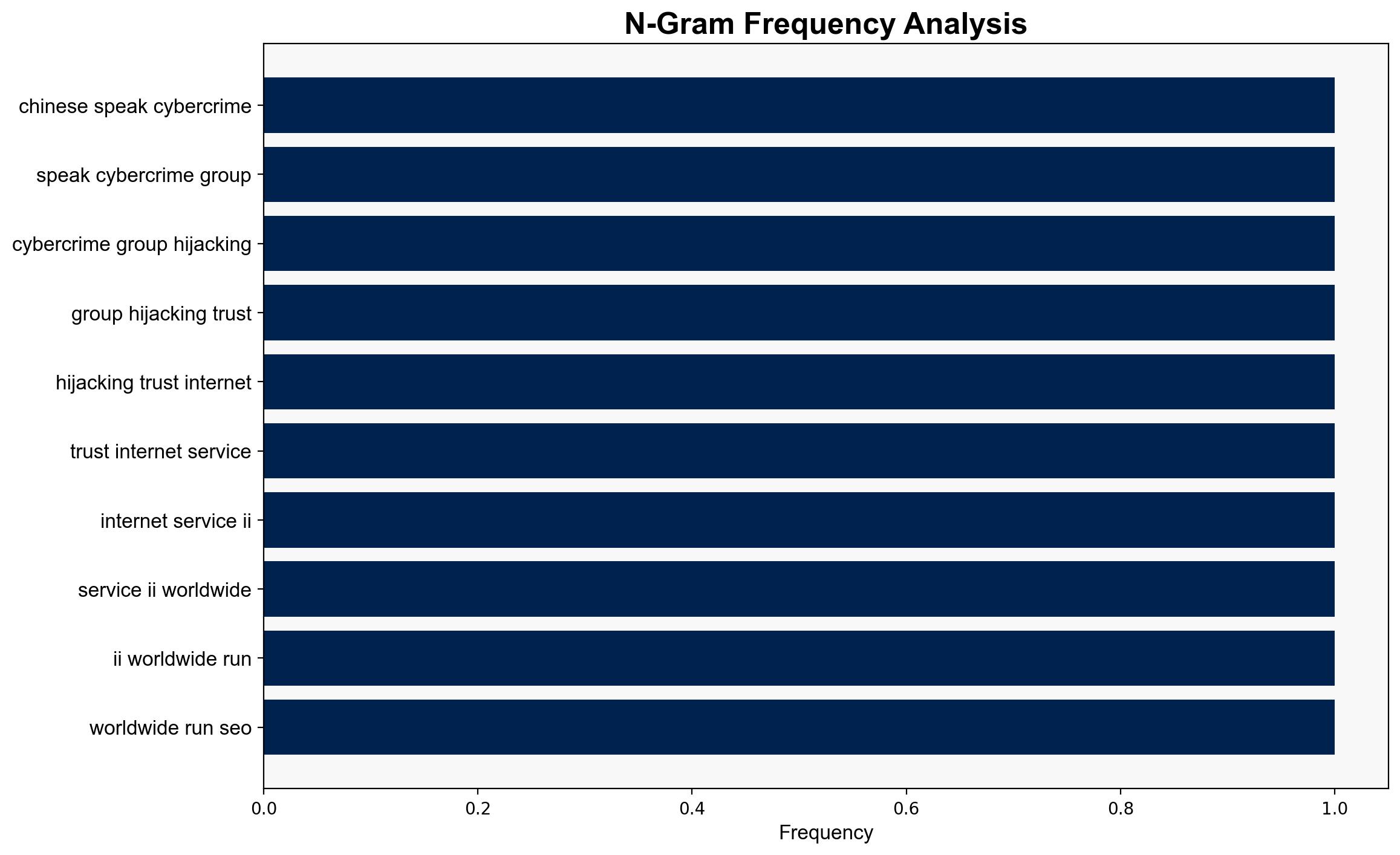Chinese-Speaking Cybercrime Group Hijacks IIS Servers for SEO Fraud – Infosecurity Magazine
Published on: 2025-10-03
Intelligence Report: Chinese-Speaking Cybercrime Group Hijacks IIS Servers for SEO Fraud – Infosecurity Magazine
1. BLUF (Bottom Line Up Front)
The most supported hypothesis is that a Chinese-speaking cybercrime group is leveraging vulnerabilities in IIS servers to conduct SEO fraud and redirect users to unauthorized sites for financial gain. Confidence level: Moderate. Recommended action includes enhancing server security protocols and international collaboration to disrupt the group’s operations.
2. Competing Hypotheses
1. **Hypothesis A**: A Chinese-speaking cybercrime group is systematically exploiting IIS server vulnerabilities to manipulate search engine results and redirect users to illicit sites for financial gain. This involves a coordinated campaign using advanced malware and network infiltration techniques.
2. **Hypothesis B**: The cybercrime activities attributed to a Chinese-speaking group are actually being conducted by a more diverse, possibly multinational coalition of cybercriminals using Chinese language tools and techniques as a false flag to mislead attribution efforts.
Using ACH 2.0, Hypothesis A is better supported due to the consistent use of Chinese language debug strings and the specific targeting patterns observed, which align with known tactics of Chinese cybercriminal groups.
3. Key Assumptions and Red Flags
– **Assumptions**: It is assumed that the use of Chinese language strings directly correlates to the group’s origin. Another assumption is that the targeting of specific countries indicates a strategic choice rather than opportunistic attacks.
– **Red Flags**: The possibility of false flag operations is a significant red flag, as is the lack of direct attribution to specific individuals or sub-groups within the broader cybercrime ecosystem.
– **Blind Spots**: Limited visibility into the group’s internal communications and motivations, as well as potential underestimation of their technical capabilities.
4. Implications and Strategic Risks
The group’s activities pose a significant threat to global cybersecurity, potentially undermining trust in internet services and causing economic damage to affected organizations. If left unchecked, these operations could escalate, leading to broader geopolitical tensions, especially if state-sponsored links are suspected. The economic impact could extend to increased costs for cybersecurity measures and potential loss of consumer trust in digital platforms.
5. Recommendations and Outlook
- Enhance international cooperation for intelligence sharing and joint cyber defense initiatives.
- Implement advanced monitoring and anomaly detection systems on IIS servers to identify and mitigate vulnerabilities.
- Scenario-based projections:
- **Best Case**: Successful disruption of the group’s operations through coordinated international efforts.
- **Worst Case**: Escalation of attacks leading to significant economic and reputational damage to targeted entities.
- **Most Likely**: Continued sporadic attacks with gradual improvements in defense mechanisms by targeted organizations.
6. Key Individuals and Entities
No specific individuals are identified in the intelligence. The group is tracked by Cisco Talos, which provides detailed analysis of their activities.
7. Thematic Tags
national security threats, cybersecurity, counter-terrorism, regional focus




